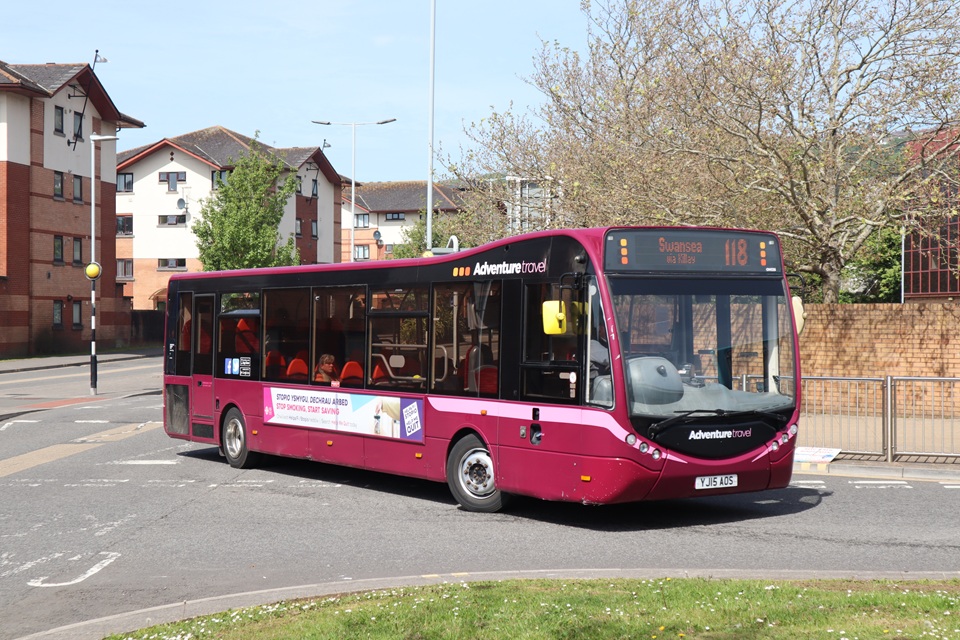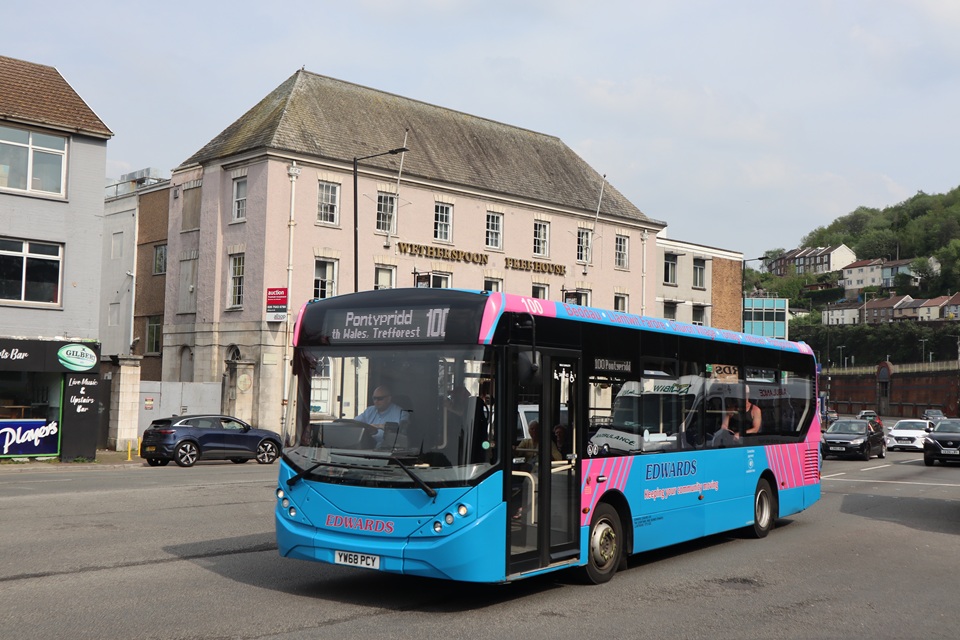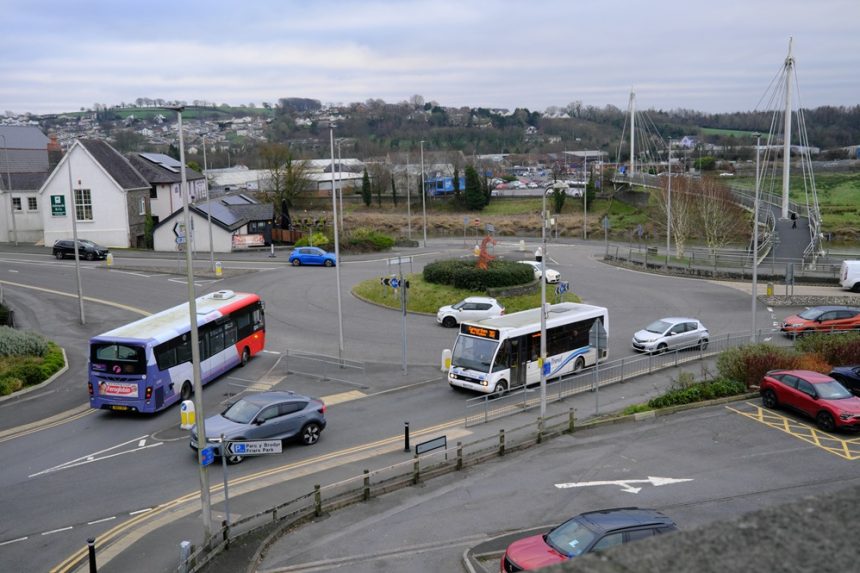Bus franchising contracts in Wales are expected to be as small as for two vehicles in a bid to protect SMEs in that market, the Senedd Climate Change, Environment and Infrastructure Committee heard on 19 June as part of ongoing scrutiny of the Bus Services (Wales) Bill.
Transport for Wales (TfW) will oversee franchising rollout, which is due to start in 2027. Bus Programme Director Richard Marwood told the Committee that it is already engaging with SME operators and how in south-west Wales, where reregulation will be deployed first, TfW has begun engagement with local authorities on how service contracts will be constructed.
Within that work, “we have got packages as small as two buses,” he explains. “We are really focused on making sure there are contracts that will be… accessible to SMEs.”
Mr Marwood adds that engagement with the operators in the Carmarthen area was helpful and that they “were really clear in their needs.” Feedback has illustrated how even a 10-bus contract would be unattractive to some SMEs because they lack the scale to deliver it.
On how small awards could sit against larger contracts that would be more attractive to bigger operators, Mr Marwood believes that the two bidder groups may have little crossover.
“What we are thinking… is rather than level playing fields, it is different playing fields,” he told the Committee. “We think packages that are attractive to large operators and packages that are attractive to small operators, in some respects, are really quite different.”
TfW suggests that big operators would have little attraction to very small packages. “It is not a business they are that interested in,” Mr Marwood continues. “We see that we can… have quite distinct offerings that are really focused on where the SME market is and how we can ensure that SME market continues to thrive.”

Executive Director for Regional Transport and Integration Lee Robinson underlines how TfW is also starting to talk to operators about contract make-up and content. He adds that it wants “the process of contracting with us to be simple and accessible.”
Prospects for SMEs under franchising in Wales are a concern for many of those businesses and their representative bodies, with such parties citing how small operators deliver a major chunk of the country’s bus network.
While franchising excludes home-to-school services or ‘learner travel’, Cabinet Secretary for Transport and North Wales Ken Skates told the hearing that he expects those workstreams to nevertheless sit closely under the new regime.
Mr Robinson adds that within franchised bus network development by TfW and stakeholders will be consideration of how closed-door learner travel can be minimised and as many of those flows as possible diverted to public bus services.
“We are looking at how… we optimise the public transport network so that we are able to carry as many schoolchildren as possible through that network and minimise the closed[-door] school services, obviously recognising that that is also a mainstay for SMEs,” he says.
While the approach to franchising in Wales has been questioned by some bus industry figures, Mr Skates says that while he is aware of those concerns, alternatives such as Enhanced Partnership and “tiered franchising” contracts do not offer a means of delivering on the ambition that has been set out by the Welsh Government.
“We believe that the scope of provision [in the Bill] – including permitting, including direct provision – ensures appropriate alternative methods to guarantee certainty and continuity of service should emergencies arrive, or should there be market failure,” he says. “But I do not think that there is a need for a plan B as has been outlined by some in the industry.”

SME considerations extend to depot and fleet ownership under franchising. Mr Robinson notes how in south-west Wales, “key ownership” of potentially three depots by TfW would assist in delivery.
However, there is “no way” that it or the Welsh Government would own “all of the depots across the whole of Wales,” with Mr Marwood acknowledging how many operating centres are not solely used for bus service delivery.
On fleet, TfW expects to move to a model whereby it owns vehicles, subject to funding. Mr Marwood notes that investment and decarbonisation “has been quite challenging in Wales,” but that it leaves opportunity to introduce new vehicles and drive zero-emission uptake.
“We have already spoken to operators at a fairly high level about the idea of a residual value mechanism,” he continues. That would help TfW to ensure vehicle availability while derisking operator investment via removal of the ‘stranded asset’ risk if franchising contracts are lost.
Transcript of the 19 June Committee session here.

























